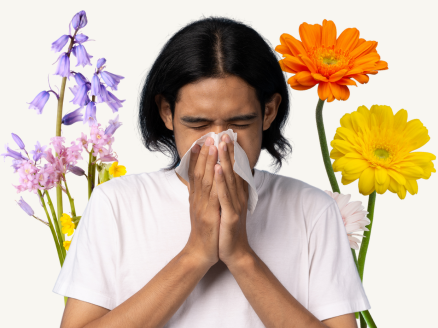Expert tips to manage your allergies and enjoy every season to the fullest.
As the seasons change, many of us eagerly anticipate the beauty of blooming flowers, lush greenery, or freshly fallen snow. However, for millions of people, the arrival of spring, summer, fall, or winter also signals the onset of seasonal allergies.
If you find yourself sniffling, sneezing, or experiencing itchy eyes during certain times of the year, you're not alone. Seasonal allergies affect a significant portion of the population, but the good news is that there are effective strategies to manage and alleviate your symptoms.
Understanding Seasonal Allergies
Seasonal allergies, also known as hay fever or allergic rhinitis, occur when your immune system reacts to allergens present in the environment. Common triggers include pollen from trees, grasses, and weeds, as well as mold spores.
When exposed to these allergens, your immune system releases chemicals like histamine, which leads to inflammation and the typical symptoms associated with allergies, such as sneezing, congestion, and itchy eyes.
6 Ways to Manage Seasonal Allergies
Combatting seasonal allergies often requires a proactive approach. Here are some ways to effectively manage your symptoms and enjoy each season with greater ease and comfort:
1. Know Your Triggers
Identify the specific allergens that trigger your symptoms by keeping track of your symptoms and potential exposure to pollen or mold.
2. Monitor Pollen Counts
Stay informed about local pollen counts and adjust your outdoor activities accordingly. Pollen levels are typically highest in the morning and on windy days.
3. Keep Indoor Air Clean
Use high-efficiency particulate air (HEPA) filters in your home's heating and cooling systems to trap allergens. Keep windows closed during peak pollen times and use air purifiers to reduce indoor allergens.
4. Practice Allergy-Proofing
Take steps to minimize your exposure to allergens by removing shoes before entering your home, washing your hands and clothes after spending time outdoors, and showering before bedtime to rinse off pollen.
5. Consider Allergy Medications
Over-the-counter or prescription allergy medications, such as antihistamines, nasal corticosteroids, and decongestants, can help alleviate symptoms. Consult with a dedicated ENT and Allergy healthcare provider to determine the best treatment plan for you.
6. Explore Immunotherapy
Allergy shots or sublingual immunotherapy (allergy drops) can help desensitize your immune system to specific allergens, reducing your sensitivity and symptoms.
Expert Insights from ENT and Allergy Associates
At ENT and Allergy Associates, our team of over 250 specialists understands the impact that seasonal allergies can have on your quality of life. Our specialists are dedicated to providing personalized care and effective treatment options tailored to your needs.
Whether you're seeking relief from seasonal allergies, chronic sinusitis, or other allergic conditions, we're here to help you breathe easier and enjoy every season to the fullest.
Schedule an appointment today at one of our 50 office locations to receive rapid allergy relief!
